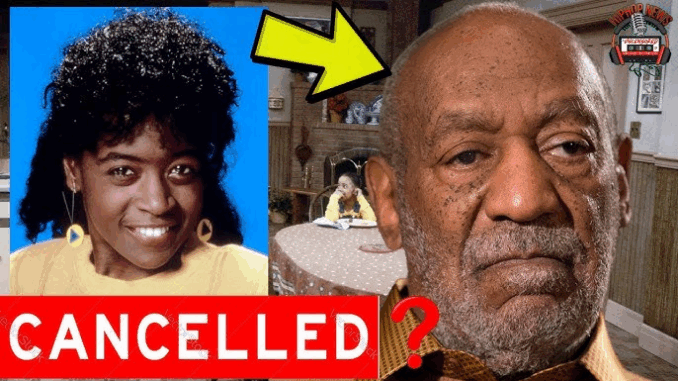
It was the sitcom that changed television forever — and then, it became the scandal that shattered America’s trust. What really happened behind the scenes of The Cosby Show?
For nearly a decade, The Cosby Show stood as the gold standard of television. With its perfect blend of humor, heart, and cultural resonance, the series didn’t just entertain — it educated, uplifted, and united audiences across racial and generational lines. At its core was Cliff Huxtable, played by Bill Cosby: a lovable father figure who made audiences laugh and feel safe.
But behind the curtain of primetime perfection, a much darker story was unfolding.
In what is now considered one of the most devastating scandals in entertainment history, Bill Cosby — the man who helped craft the show’s moral compass — was accused by more than 60 women of sexual misconduct, with testimonies spanning decades. His 2018 conviction (later overturned in 2021 on procedural grounds) left a bitter aftertaste in the mouths of millions who grew up idolizing him.
The Betrayal That Shook a Generation
For many fans, the revelations weren’t just shocking — they were personal. The Cosby Show had become a cultural pillar, especially for Black America. It wasn’t just about sitcom laughs; it was about visibility, dignity, and a positive portrayal of Black family life in mainstream media. Losing that ideal felt like losing a part of the American dream.
Cosby’s fall dragged the entire legacy of the show down with him. Networks distanced themselves. Merchandise disappeared. Even former cast members found themselves trapped between loyalty to a cultural milestone and outrage over the man behind it.
The Fallout: Can the Huxtables Be Saved?
Some fans argue the show’s message still matters. “The Cosby Show wasn’t just Cosby,” they say. It featured powerful performances from Phylicia Rashad, Malcolm-Jamal Warner, and others who inspired generations. But in an age where accountability is non-negotiable, others believe the show’s existence on any platform is a slap in the face to survivors.
Meanwhile, a new generation is discovering The Cosby Show not through primetime reruns, but through YouTube clips and TikTok nostalgia — sparking fresh debates about ethics, art, and cancel culture.
A Legacy in Limbo
Three decades ago, The Cosby Show was a beacon. Today, it’s a case study in how quickly a legacy can collapse under the weight of truth.
As society grapples with how to remember the unthinkable, one question remains unanswered:
When the face of your childhood turns into a villain, can you ever watch the show the same way again?